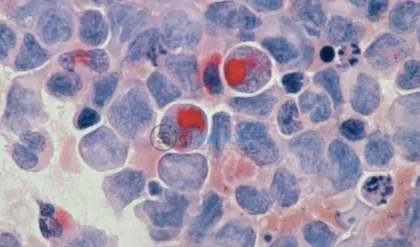
A groundbreaking study conducted by scientists at the Cellular Ageing and Senescence laboratory at Queen Mary University of London has unveiled additional benefits of caffeine, the world’s most widely consumed neuroactive compound. Published in the journal Microbial Cell, this research suggests that caffeine could play a significant role in slowing down the aging process at a cellular level.
Historically, caffeine has been associated with various health benefits, particularly a reduced risk of age-related diseases. However, the mechanisms through which caffeine interacts with cell functions, particularly in relation to nutrient and stress response gene and protein networks, have largely remained unclear. This new research provides valuable insights into how caffeine operates within cells.
The research team utilized fission yeast, a single-celled organism that shares surprising similarities with human cells, to investigate the effects of caffeine on aging. Previous studies by the same group had already established that caffeine could prolong cell life by influencing a growth regulator known as TOR (Target of Rapamycin). TOR acts as a biological switch, determining whether cells should grow based on the availability of food and energy—a mechanism that has been in place for over 500 million years.
In their latest findings, the scientists made a noteworthy discovery: rather than acting directly on the TOR growth switch, caffeine instead activates a different, critical cellular system known as AMPK. This system serves as a “fuel gauge” for cells, evolved to help them cope when energy levels run low. Dr. Charalampos (Babis) Rallis, a Reader in Genetics, Genomics, and Fundamental Cell Biology at Queen Mary University and the study’s senior author, explained that caffeine effectively “flips that switch,” enabling cells to better manage their energy resources.
Interestingly, AMPK also acts as a target for metformin, a common diabetes medication currently being investigated for its potential to extend human lifespan, alongside rapamycin. This connection underscores the importance of AMPK as a key player in both metabolic health and aging.
Through their investigations using the yeast model, the researchers revealed that caffeine’s influence over AMPK impacts several vital cellular processes, including growth, DNA repair, and stress response—all critical factors associated with aging and disease susceptibility. This suggests that caffeine could contribute positively to health and longevity.
Dr. John-Patrick Alao, the postdoctoral research scientist leading the study, emphasized that these findings clarify the potential health benefits of caffeine. He noted that they pave the way for exciting future research, exploring how these effects might be triggered more directly through diet, lifestyle changes, or new medications.
In conclusion, the next time you reach for a cup of coffee, remember that you might not only be enhancing your alertness but also providing your cells with significant support in their fight against aging. This newfound understanding of caffeine’s cellular impact signals promising avenues for further exploration in the quest for longevity and better health outcomes.
Reference:
- John-Patrick Alao, Juhi Kumar, Despina Stamataki, Charalampos Rallis. Dissecting the cell cycle regulation, DNA damage sensitivity and lifespan effects of caffeine in fission yeast. Microbial Cell, 12: 141-156 DOI: 10.15698/mic2025.06.852






